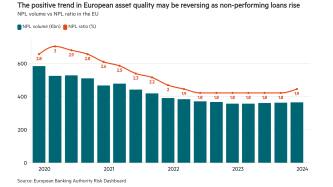What is it?
The UK authorities are poking their noses into the intricate workings of the private equity market. They are worried that it has been growing too fast and that if the bubble bursts, it could wreak havoc in the wholesale financial markets.
A discussion paper, Private equity: a discussion of risk and regulatory engagement, DP06/06, was published in November, setting out the threats and additional regulatory measures to prevent a nightmare turning into reality. Industry participants and public policy makers have until March 6 to respond.
Who dreamed it up?
The wholesale markets and institutions division of the Financial Services Authority (FSA).
What are its main provisions?
The paper examines the benefits and risks that the movement of capital from the public to the private equity markets in the past few years have brought to the UK and international capital markets. Once responses to the paper have been analysed, the FSA will publish a feedback statement giving its reaction. If it thinks regulatory changes are necessary, it will publish proposals in a consultation paper.
The discussion paper says that the FSA has already decided to set up an “alternative investments centre of expertise”. This will combine the team supervising private equity firms with the team supervising hedge fund managers.
What’s in the small print?
The paper outlines how the FSA has already enhanced its snooping activities. It says the risks of market abuse are particularly high and that, accordingly, it has reminded a number of firms of their obligations under the Code of Market Conduct and is beefing up its transaction monitoring systems.
“If, through this surveillance and monitoring, we identify any incidences of market abuse by private equity firms or in relation to private equity deals, we will follow them up and take the appropriate action,” it warns.
What does the industry say?
The industry is against excessive regulation. The UK private equity industry already “operates within a fully regulated regime”, says Peter Linthwaite, chief executive of the British Venture Capital Association, the body representing private equity and venture capital houses. “Together, the industry and the FSA need to ensure that regulation remains appropriate and never becomes an obstacle to the good conduct of our business,” he adds.
The Alternative Investment Management Association, which represents hedge fund managers in 46 countries, welcomes the discussion paper but disagrees with the FSA and others who believe hedge funds and private equity are converging.
How much will it cost?
The FSA will carry out a full cost-benefit analysis if it takes the matter to the consultation paper stage.
What do the regulators say?
The FSA believes that private equity is “an increasingly important component of international capital markets”. But – and it’s a big but – it adds: “Recent market developments have prompted the FSA to consider whether it currently exercises an appropriate level of regulatory engagement with the sector.”That is a euphemism for rolling out more red tape.
The law of unintended consequences
If the FSA ties the industry in knots, it could cause private equity players to move to more lightly regulated jurisdictions.
Could we live without it?
Yes, we could live without more private equity regulation. But the discussion paper is a good idea. It is such a rapidly growing sector that it is only prudent to look at the pros and cons.
Rating: 4
Rating scale:5 = Essential;4 = Useful; 3 = Neutral;2 = Unnecessary;1 = Waste of time











